Following Cotton
through the process
Many individuals and companies make up what cotton producers call the “supply chain.” Every step is imperative to its success each year. Here, we take a look at the impact cooperatives have on grower-owners at every level.
Farming
It was the establishment of the Cooperative Extension System and the Cooperative Marketing Act of 1926 that made cotton farmers truly embrace the idea of cooperatives. Cotton farmers quickly realized – after researching and studying the success of the co-op innovation that paved their path – it was to their benefit to work together and assist their bottom line. By the mid-1930s, cotton cooperatives were taking hold.
Cotton farmers have been a steadfast part of our nation’s fabric. For the love of their families – even beyond their desire to contribute to our nation’s agricultural supply and demand – cotton farmers of the early 20th century paved the way for cooperatives to have an impact that would not only be grounded in tradition, but also a guaranteed investment in their futures.
Co-ops have long been about real ownership, transparency and control – ultimately preserving the legacy of family farms, local businesses and rural communities.
Ginning
Producers along the cotton supply chain depend on each other. Once cotton is harvested, ginning is the next step in the process – and cooperatives abound for those in the industry.
Co-op Advantage® regional co-sponsors PYCO Industries, Inc., and Producers Cooperative Oil Mill (PCOM) are two key contributors to this portion of the supply chain. Both are federated co-ops, which means they are owned by the cooperative gins they serve.
It’s a guiding cooperative principle all along the supply chain that is proven by the grower-owners and co-ops who support local school athletic departments, booster clubs, stock shows, fire departments and civic volunteer activities, just to name a few.
While cooperatives make an impact on grower-owners’ bottom line, those in the farming industry also make an economic impact on their communities and a conscious giving impact each and every day.
Warehousing
Warehouses, a key part of the cotton supply chain, maintain full control over shipping schedules, loading and delivery. This means greater returns for the grower-owners of the cooperative, and better service to cotton buyers.
Co-op Advantage regional co-sponsor Farmers Cooperative Compress (FCC) is a perfect illustration of the impact of cooperatives on grower-owners.
With 228 warehouses providing more than 12 million square feet of space, FCC has a USDA-licensed capacity of more than 2.2 million bales with a main charge of responsible storing and shipping of cotton worldwide.
Currently, 45 cooperative gins deliver cotton to FCC facilities – no small feat for an area that produces approximately one-quarter of the nation’s cotton.
The impact of cooperatives along the supply chain – and on cotton specifically – emerges at every level. Involvement is imperative for producers to engage in multiple co-ops to reduce risk and gain value to better their bottom line.
Marketing
Once harvested and ginned, every producer knows their family’s bottom line is based on market value. Every harvest year is a complex process known no better than to those along the supply chain.
But for every producer, the focus needs to be on doing what they do best – growing, harvesting, ginning, warehousing and shipping. Yet the bottom line is knowing market value, and that’s a full-time focus.
That’s why, in 1953, a group of farmers who were searching for a way to achieve the best possible price for their cotton founded Co-op Advantage regional co-sponsor Plains Cotton Cooperative Association (PCCA). Since then, PCCA works to serve its grower-owners, finding new strategies in technology, advocating on behalf of farm legislation and improving the total benefit of true ownership to all grower-owners along the supply chain.
PCCA – like all Co-op Advantage regional sponsors – stands true to the cooperative principles that are grounded in tradition and invested in the future of all those who join.
Shipping
Textile mills around the world count on our nation’s cotton crop each year; specifically the commodity from our region – spanning West Texas to Eastern New Mexico and Kansas to Oklahoma.
Export is imperative to the supply chain for all cotton producers.
Yet again, enter FCC.
FCC, the largest warehousing entity in the world, is charged not only with storing, but also shipping cotton worldwide. Founded 69 years ago, FCC was established as a way to successfully and affordably house cotton domestically and distribute it globally from West Texas.
PCCA also comes into play in this level of the supply chain. The regional co-sponsor arranges the logistics to ensure all cotton they sell is delivered where it needs to be in a timely manner.
Seed Processing
Last but not least along the supply chain is seed processing. Regional Co-op Advantage co-sponsor PYCO serves as the largest cottonseed processing cooperative serving the southern United States with two cottonseed oil mills located in Lubbock.
For the grower-owners of the co-op gins served by PYCO, the impact is tremendous. In addition to producing cottonseed oil for cooking, PYCO also markets whole cotton seed and the by-products of cottonseed processing. The marketing of these products allows PYCO’s owners to enjoy access to broader markets and added value to their crop.
The byproducts of cottonseed can be found in a variety of products.
- Oil well drilling md
- Rubber plastics
- Feed for dairy and beef cattle
Whole Seed
- Feed for dairy and beef cattle
Meal
- Fertilizer
- Feed for dairy cattle, livestock, fish and shrimp
- Fingernail polish
- Gun powder
- Solid rocket propellant
- Filters
- Currency securities
- X-ray tapes
- Packaging
- Mattresses
- Comforters
- Upholstery
- Twine
- Rugs
- Candlewicks
- Medical grade cotton
- Lacquers
- Paint
- Snack food oil
- Margarine
- Salad dressing
- Explosives
- Cosmetics
- Rubber
- Tocopherols
- Vitamin E





